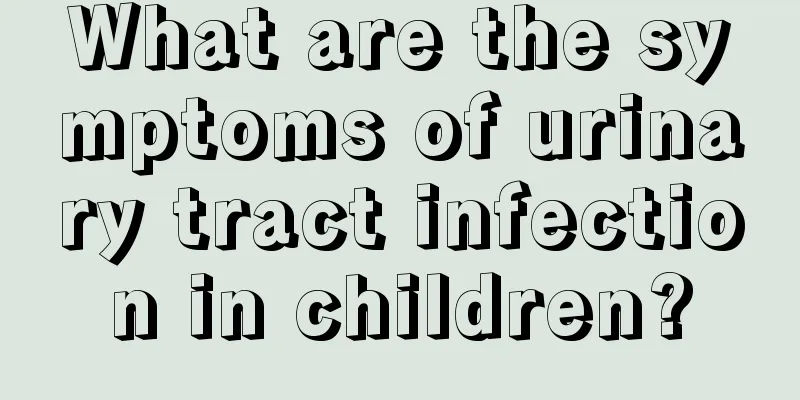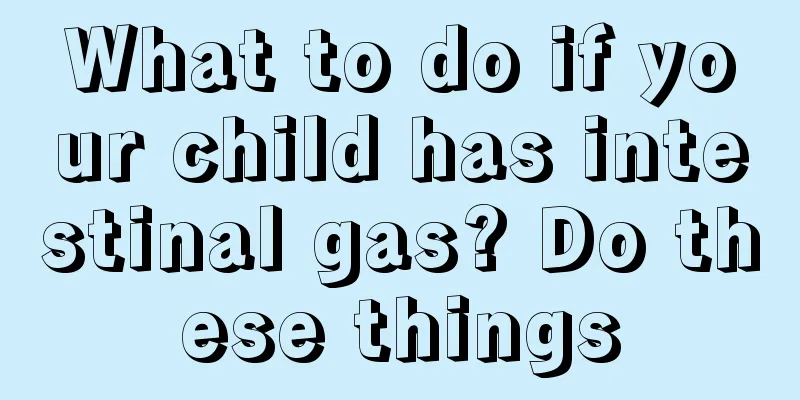What are the symptoms of urinary tract infection in children?

|
Since children have poorer physical constitutions and relatively weaker immune systems, they do not have much resistance to some diseases, especially urinary tract infections, which have more symptoms and a longer course of illness. The following are some symptoms of urinary tract infections in children. Symptoms of urinary tract infection in children 1. Acute urinary tract infection. It refers to patients with a disease course of less than 6 months. Symptoms vary depending on age and where the infection affects the affected area. Older children are similar to adults. The younger the child, the more obvious the systemic symptoms are, and local urination irritation symptoms are often mild or easily ignored. 1. In the neonatal period, it is mostly caused by bloodstream infection. The symptoms vary in severity, with systemic symptoms being the main ones, such as fever, poor feeding, pallor, vomiting, diarrhea, abdominal distension and other non-specific manifestations. Most children may experience growth stagnation and slow weight gain. Some children may have convulsions, lethargy, and sometimes jaundice. However, the symptoms of local urination are generally not obvious, so we must be vigilant about this disease. For unexplained fever, routine urine examination and urine and blood culture should be performed as soon as possible to confirm the diagnosis. 2. In infancy and childhood, systemic symptoms are still the main ones, such as fever, mild cough, and repeated diarrhea. Urinary symptoms such as frequent urination, urgency, and pain become more obvious with age. If your child cries during urination, urinates frequently, or has persistent diaper rash, you should consider this disease. Jaundice may occasionally occur. 3. In childhood, lower urinary tract infection usually presents only with urinary tract irritation symptoms such as frequent urination, urgency, and pain when urinating. Sometimes there may be terminal hematuria and enuresis, but systemic symptoms are usually not obvious. However, systemic symptoms of upper urinary tract infection are often more obvious, manifested as fever, chills, general malaise, and may be accompanied by low back pain and percussion pain in the kidney area. It may also be accompanied by urinary irritation symptoms. Some patients may have hematuria, but proteinuria and edema are usually not obvious. It generally does not affect renal function. If the treatment is not thorough or the disease recurs repeatedly or there are other factors such as urinary tract obstruction and deformity, it may become chronic. 2. Chronic urinary tract infection. Refers to patients with a disease course of more than 6 months and a protracted illness. Symptoms range from no obvious symptoms to renal failure (with impaired concentrating function appearing first). Repeated attacks may manifest as intermittent fever, back pain, fatigue, weight loss, progressive anemia, etc. Local lower urinary tract irritation symptoms may be absent or intermittent. Pyuria and cyturinia may or may not be obvious. The children often have concurrent urinary reflux or congenital urinary tract structural abnormalities. Renal scarring can be seen by B-ultrasound examination or intravenous pyelography. Early correction can reduce kidney damage. |
<<: What to do if your child has allergic rhinitis and nasal congestion
>>: What to do if your baby has urinary tract infection
Recommend
What fruits should not be eaten by children when they have a fever?
Children have very low resistance, and if they ar...
Delayed closure of the anterior fontanelle in children is common in the following situations
We all know that when a child learns to speak, th...
Does a child's fever and convulsions affect his intelligence?
If we have some bad conditions in our body, we mu...
Can amblyopia in children be cured?
Nowadays, we often see some children wearing glas...
The dangers of cerebral palsy in children
We also call cerebral palsy in children cerebral ...
What's going on when my baby has blue loose stools?
When a mother finds that her baby's stool is ...
What to do if your child keeps coughing
Coughing is a disease that we are all afraid of. ...
What causes red, swollen and bleeding gums in children?
In our daily lives, it seems that children do not...
What should we do during children’s sensitive period? Parents can respond in this way
Children will have sensitive information at every...
The child is one and a half years old and still can't walk
In the process of a child's growth and develo...
How do children develop tooth decay?
As we all know, children's self-control is ge...
What conditions can cause a baby to be deformed?
Everyone knows that there are many precautions to...
Does nebulization have any side effects on babies?
Whenever the seasons change, the temperature chan...
What to do if your baby bites his fingers
The physical health of the baby is what parents c...
What are the symptoms of neonatal hemangioma?
Many newborn babies will have hemangioma, a benig...









